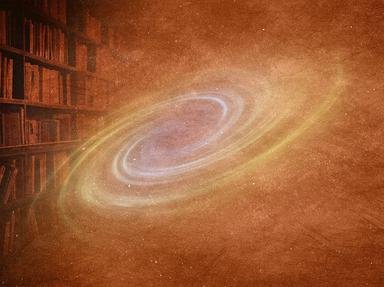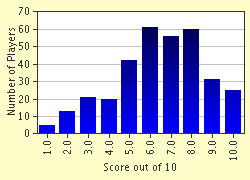Quiz Answer Key and Fun Facts
1. Agriculture rapidly depletes soil of nitrogen, necessitating nitrogen fertilizers to maintain yields. During the 19th century, bird droppings from South American Islands, which were the major source of nitrogen for fertilizers, were depleted. By 1900, what mineral mined in Chile had become the major source of nitrogen for use in fertilizers? (Hint: it was also used to make gunpowder and other explosives and is a diuretic.)
2. In the first years of the 20th century, scientists warned that world starvation loomed because natural sources of nitrogen were nearly depleted. Although the combination of nitrogen with hydrogen was known to be an exothermic reaction, the two elements did not combine at room temperature when simply mixed. What necessary prerequisite(s) for a successful synthetic process did Fritz Haber perfect?
3. In 1999, the prestigious scientific journal "Nature" selected a process that Fritz Haber and Carl Bosch developed for the synthesis of ammonia from atmospheric nitrogen as the most important scientific advance of the 20th century. How many people are estimated to be dependent on this process worldwide for their food?
4. For a number of reasons, Fritz Haber's discovery is considered to be a mixed blessing. How is Fritz Haber's effective method for producing mass quantities of ammonia thought to have prolonged World War I?
5. What notable negative impacts have some 21st century scientists attributed to the widespread use of Haber's process to produce nitrates?
6. Fritz Haber's personal conduct has also been called into question. During World War I, Fritz Haber was the Chief of Chemistry for the German war department. His wife's suicide was attributed to his work with chlorine and phosgene; and after World War I, the Allies sought to arrest Haber as a war criminal. Which of the following personal actions had Haber taken during the war?
7. Haber's process for making ammonia from atmospheric nitrogen had prolonged the war and Haber's chemical research during the war had resulted in thousands of Allied deaths. Yet, the pivotal importance of his work was well understood. In 1918, what did a panel of judges decide regarding Fritz Haber?
8. None question Fritz Haber's patriotic devotion to his country. Following World War I, why was Fritz Haber attempting to extract gold from seawater?
9. Having been nearly arrested as a war criminal following World War I, Haber's devotion to his country was so great that he continued doing secret weapons research for Germany.
10. In 1933 Haber's institute was closed and he left the country in 1934. What prompted Haber's resignation?
Source: Author
uglybird
This quiz was reviewed by FunTrivia editor
crisw before going online.
Any errors found in FunTrivia content are routinely corrected through our feedback system.

